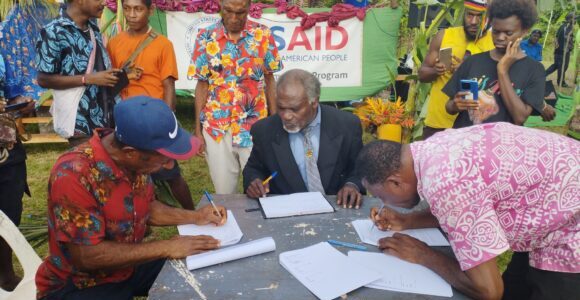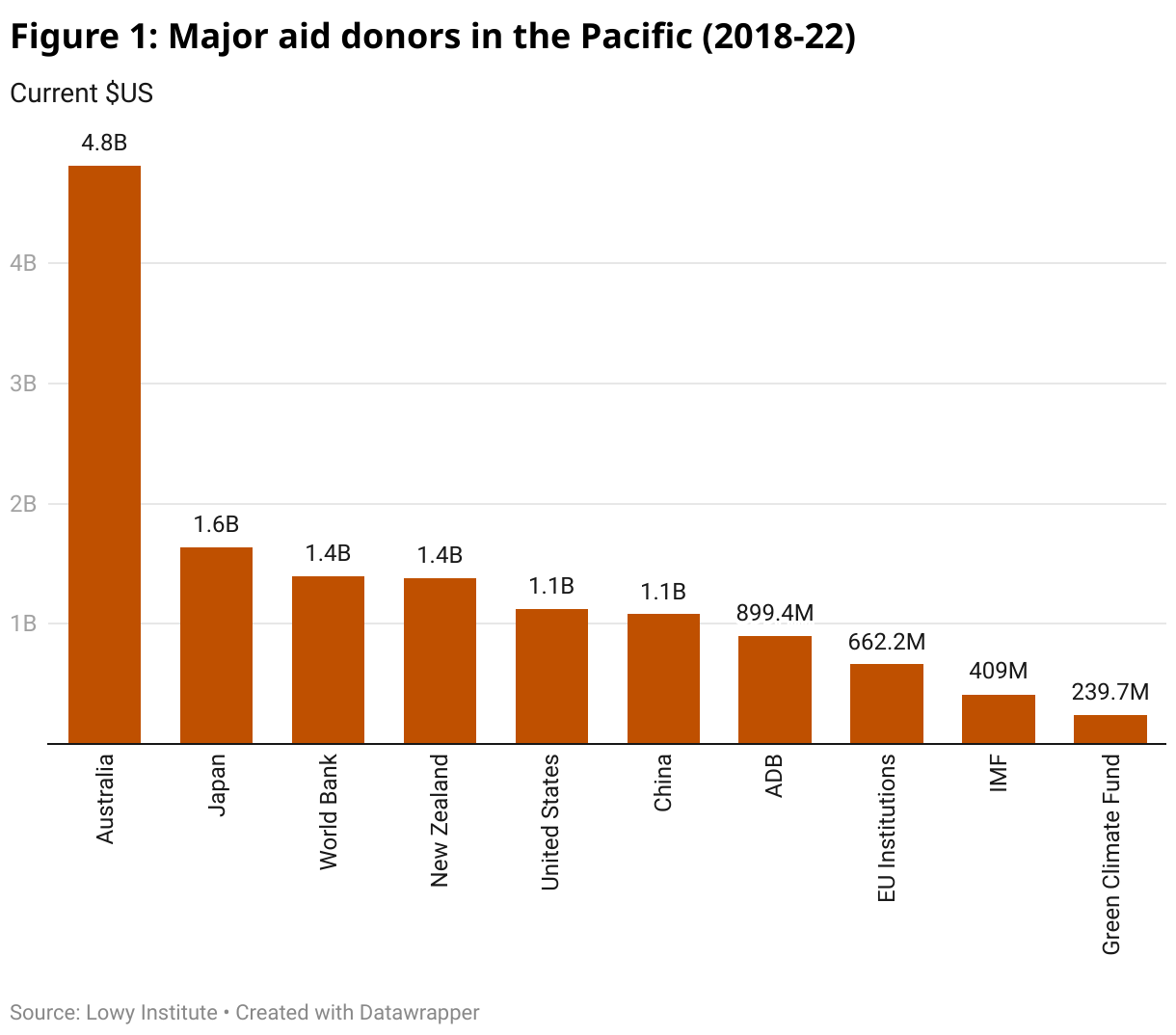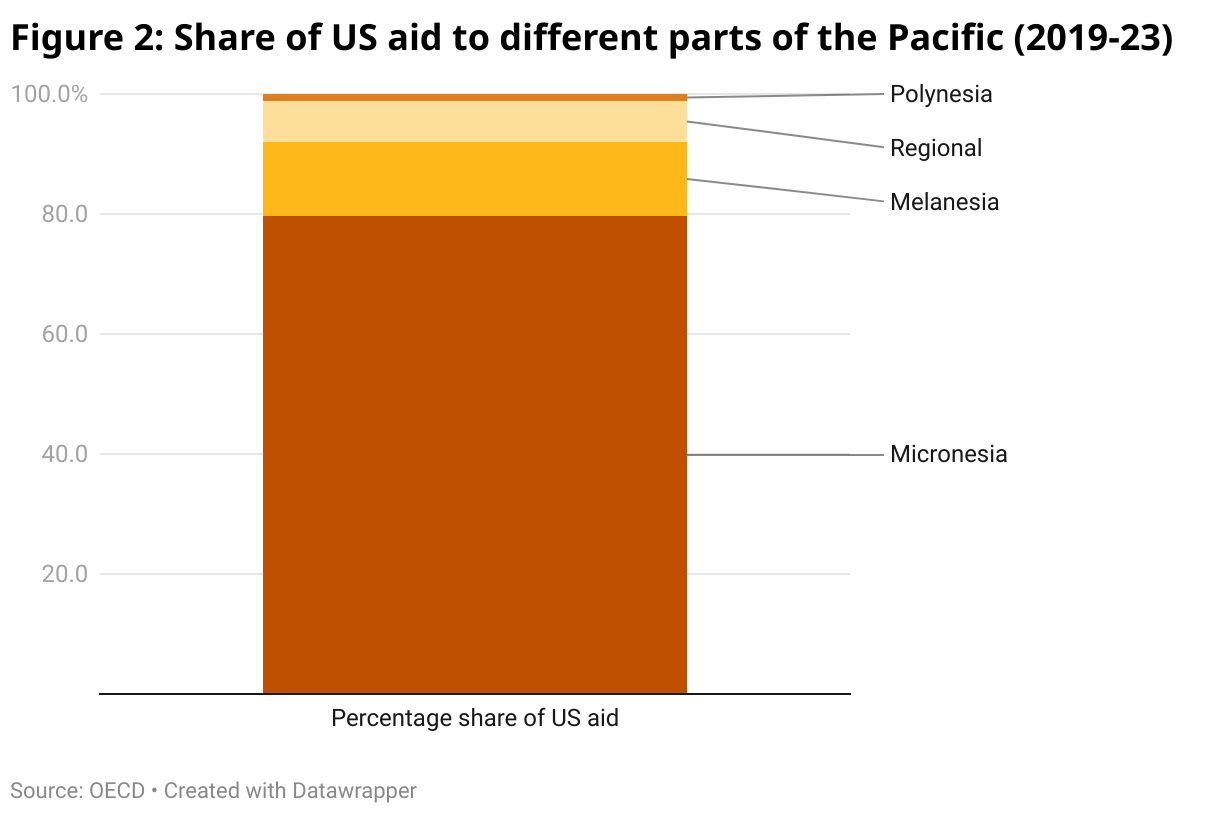The United States’ Trump Administration’s freeze on foreign aid will be felt around the world, including in Papua New Guinea. Terence Wood of the Australian National University’s Development Policy Centre breaks down the potential impact on PNG and the Pacific.

USAID has helped communities safeguard over 40,000 hectares of forest and marine areas in Madang Province and over 60,000 hectares nationwide, through conservation deeds. Credit: Facebook/USAID.PNGSIVAN
While the Trump Administration’s freeze on foreign aid will have an impact around the world, the decision will be felt in the Pacific too.
The Pacific region is the world’s most aid-dependent. Its countries are, for the most part, either tiny and remote or larger and politically unstable. Malaria, HIV/AIDS, dengue fever and tuberculosis are major problems in several countries. Most Pacific countries are highly vulnerable to the effects of climate change and natural disasters.
Impacts to vary in Pacific
Regionally, the United States is not nearly as large a donor as Australia but the below chart, taken from Lowy Institute data, shows it gave more to the region than China did over the five most recent years for which data were available for both countries.

If the policy settings of the Biden administration had been maintained, US aid was set to increase under the first-ever US-Pacific Partnership Strategy, including through a pledge of US$60 million per annum to the Forum Fisheries Agency and the relaunching of the Peace Corps in the Pacific.
US aid is not equally spread across the Pacific. As can be seen below (based on OECD reporting for the five most recent years with data), the bulk of US aid to the Pacific goes to Micronesia, and in particular the so-called Compact States: the Federated States of Micronesia, the Marshall Islands and Palau.
As my colleague Cameron Hill has reported, there is considerable confusion as to whether aid to the Compact States is covered by Trump’s executive order to freeze US aid. Legally, it seems as if the compact states should be excluded from the freeze but in practice it appears as if impacts are being felt.
A cessation of most US aid would be disastrous for the Compact States, but that’s not the end of the story.
How will this impact PNG?
In recent years the United States has provided more than US$13 million dollars in disaster preparedness support to countries such as Papua New Guinea, Solomon Islands, Vanuatu and Tonga. It has provided nearly US$20 million dollars in HIV assistance to Papua New Guinea and Fiji. It has provided nearly US$12 million for biodiversity work in Papua New Guinea.
Some of this was funding through the US President’s Emergency Plan for AIDS Relief, known as PEPFAR, which has been declared exempt from the funding freeze. However, the majority of the funding does not appear to have been from PEPFAR.
There will be other flow-on effects too: the US is the largest contributor to the World Bank’s International Development Association (the Bank’s concessional financing arm). And the World Bank is the third largest aid donor in the Pacific. The US has also, historically, been the second largest donor to the Asian Development Bank’s Asian Development Fund. The Asian Development Bank is a major donor in the Pacific.
It would be unprecedented for the United States to renege on existing funding commitments to these multilateral development institutions, but precedent counts for little at present.
Flow on effects of US decisions
Other US decisions about multilateral organisations will also be felt through the Pacific. The United States was the world’s largest contributor to the World Health Organization in 2024-25. The Trump administration has announced it will pull the US out of the WHO, which will have a massive impact on funding. As Samoa’s Prime Minister Fiame Naomi Mataʻafa has pointed out, the impacts of falling WHO funding will be felt in the Pacific too.
To make matters worse, if other donors attempt to fill aid gaps caused by what the United States is doing elsewhere, they might potentially cut their aid to the Pacific.
In a purely quantitative sense, not all Pacific countries will be that badly affected directly by the US aid freeze. But the flow-on effects of what is happening in the United States – the world’s largest aid donor – will reach the Pacific one way or another.
This piece was written by Terence Wood, a Fellow at the Australian National University’s Development Policy Centre. It is an edited version of an opinion piece in Devpolicy Blog and has been reproduced here with permission.










Speak Your Mind